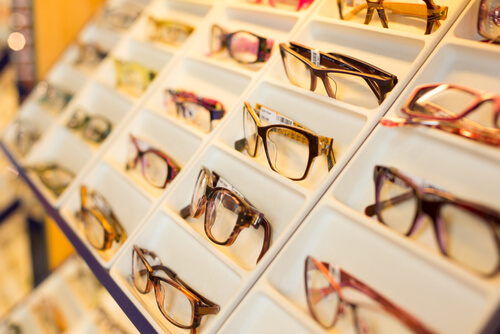Now with 3 convenient locations!

Sixty percent of the 161 million Americans who wear prescription eyewear choose eyeglasses. Wearing eyeglasses is one of the simplest ways to correct vision problems.
To see images clearly, light rays must focus directly on the retina, the light-sensitive nerve layer that lines the back of the eye. There are different kinds of focusing problems, called refractive errors, which may require corrective lenses. In the case of myopia or nearsightedness, the eye is too long. Light rays focus before reaching the retina and images appear blurry. In hyperopia or farsightedness, the eye is too short, so light rays have not yet focused when they reach the retina. Astigmatism describes an eye with a cornea that is oval shaped instead of round, causing light rays to hit the retina in more than one place.
Eyeglass lenses compensate for an eye that is too long or too short by adding or subtracting focusing power. The lenses create just the right amount of focusing power so light rays focus directly on the retina.
A plus (+) in front of the first number of the eyeglass prescription means the lens corrects farsightedness. A minus (-) in front of the first number means the lens corrects nearsightedness. If a second and third number are present in the prescription, they indicate astigmatism. The higher the first number in the prescription, the greater the correction in the lens.
Lenses are available in glass, regular and high index plastic, and polycarbonate. Although they scratch less easily, glass lenses tend to be heavier and often slide down the nose. Plastic and polycarbonate lenses are lighter and safer than glass but scratch easily. Scratches cannot be removed but they can be avoided or minimized with appropriate care. Scratch resistant coatings can be applied to plastic and polycarbonate lenses but some of these coatings crack if exposed to extreme heat or cold.
Frames come in many shapes and sizes, so it is important to pick a frame that is best for you. Factors to take into consideration when selecting a frame include facial features, age, activities and the prescription itself. Often a strong prescription requires thicker lenses, which can affect your choice of frames. Ask about the quality and expected lifetime of the frame and if there is a frame guarantee..
